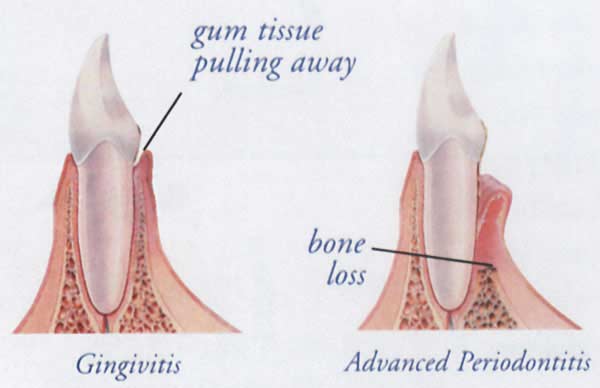Gum Disease Treatments in Orange Park FL

Determining Gum Disease
Gum Disease is also known as Periodontal Disease. Your dental team can help you better understand gum disease and how you can prevent it. They can quickly and painlessly check and monitor the condition of your gums during your care appointments. Your examinations may show signs of infection, such as bleeding or pockets (spaces between the teeth and gums) that are deeper than normal. Your dentist may suggest a course of treatment that will help stop any further damage to your gums and bones. Your dental team will then design a home-care regimen for your specific needs.
Make an appointment today and we’ll give you a reason to smile!
Thanks for allowing us to serve your dental needs and look forward to serving you.
The Link Between Gum Disease and Heart Attacks
Gum disease may relate to heart attack risk. Some studies have shown that the incidence of heart disease is about twice as high in people with periodontal (gum) disease, but until recently no plausible cause had been suggested. Now studies indicate that the most common strain of bacteria in dental plaque may cause blood clots. When blood clots escape into the bloodstream, there is a relation to increased risk of heart attacks and stroke.
People with periodontal disease (over one half the adult population) have an infection that causes chronic inflammation of the gums. Also, it is a path for these bacteria to enter the bloodstream. A recent study describes the association between heart disease and gum disease to be at least as strong as the linkage of heart disease to cholesterol, body weight, or smoking.
Periodontal Disease may increase your risk for:
- Weakened immune system
- Diabetes
- Stroke
- Lung Disease
- Preterm, low birth weight babies
- Respiratory disease
- Osteoporosis
- Gastric Ulcer
Incidence of Gum Disease
Unlike most diseases that give us early warning signs, gum disease progresses silently, often without pain. It may develop slowly or progress quite rapidly. More than half of all people over 18 have at least the early stages of periodontal disease. Even more frightening, after the age of 35, three out of four people are affected to some degree. Periodontal disease is an infection that destroys the gum surrounding your teeth and also destroys the supporting bone that holds your teeth in place.
Evidence in mounting relating gum disease to a variety of health concerns, some that are life threatening. By keeping regular recare appointment with your dental team, you help increase your chances for a long and happy life.
The ADA Early Warning Signs of Gum Disease:
- Gums that bleed when you brush your teeth
- Gums that are red, swollen or tender
- Gums that are pulled away from teeth
- Pus between teeth and gums when gums are pressed
- Permanent teeth that are loose or separating
- Change in the way your teeth fit together when biting
- Any changes in fit of partial dentures
- Persistent bad breath